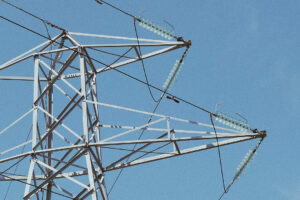TRANSMISSION CHARGES for the December period, which will be reflected in the January electricity bills, increased by 5.5%, according to the National Grid Corp. of the Philippines (NGCP).
“In general, our consumers can expect an increase in the overall transmission charges in their electricity bills this January 2025,” Julius Ryan D. Datingaling, head of business and regulatory development, said in a briefing on Wednesday.
Overall transmission rates rose 5.5% to P1.1243 per kilowatt-hour (kWh) in the December supply month, the NGCP said in a presentation.
Transmission charges reflect the cost to deliver electricity from power generators to the distribution system.
Mr. Datingaling said transmission wheeling rates, or what NGCP charges for its primary service of delivering power, rose 7.22% month on month to P0.5315 per kWh.
Ancillary services (AS) charges, on the other hand, rose 4% from a month earlier to P0.5928 per kWh.
AS charges reflect the cost of power sourced from the reserve market and providers holding bilateral contracts with NGCP who step in when supply from long-term providers is inadequate.
It has said that it does not earn from AS and did not benefit from the increase in prices as it is a pass-through cost paid to generation companies.
For the February billing period, customers may expect an increase in AS cost as the NGCP collects the remaining P3.05 billion for power generators that supplied the reserve market in March.
“In the next billing statement of NGCP to the customers next month, we will see the 70% charge for AS that generators were not able to charge from the March 2024 billing period. It will now be collected from Luzon, the Visayas, and Mindanao,” Mr. Datingaling said.
The reserve market allows the system operator to procure power reserves from the wholesale electricity spot market (WESM) — the trading floor of electricity — to meet the reserve requirements of the grid.
Referring to issues raised by legislators, the company’s representative said that the presence of Chinese nationals on its board “does not pose a threat.”
NGCP Spokesperson Cynthia P. Alabanza said that the presiding dispatchers are Filipino citizens.
“Naiintindihan ko, Filipino rin ako, nakakabahala rin ’yung issue sa WPS (West Philippine Sea), kaya kong sabihin na walang ganung threat sa look ng NGCP (I understand, as a Filipino myself, that the WPS issue is worrying, but I can say that there is no threat from within the NGCP,” she said.
The NGCP has said that it is a Filipino-led company, with 60% of its shares owned by Filipinos.
The consortium that controls the company — Monte Oro Grid Resources Corp., Calaca High Power Corp., and State Grid Corp. of China — won the bid to operate the transmission grid for $3.95 billion.
Monte Oro Grid Resources and Calaca own 60% of the company while State Grid Corp. of China holds 40%, meeting the law’s requirement for foreign investors.
Ms. Alabanza said that the NGCP has six Filipino citizens and four foreign nationals who sit as board directors, which is a “proportionate share” to its investment.
The grid operator’s board is led by Zhu Guangchao, a Chinese national, as its chairman. The members are Robert G. Coyiuto, Jr., Henry Sy, Jr., Jose T. Pardo, Francis Chua, Anthony L. Almeda, Paul P. Sagayo, Jr., Yao Yousheng, Wang Lijin, and Liu Xinhua.
“Is the chairman of the board more important? Is his vote heavier than the others? No,” Ms. Alabanza said. “In fact, kailangan presiding officer lang siya (he serves only as a presiding officer).”
The NGCP officially started operations as a power transmission service provider in 2009, it said. Under a congressionally granted 50-year franchise, the company has the right to operate and maintain the transmission system and related facilities, and to exercise the right of eminent domain as needed to construct, expand, maintain, and operate the transmission system. — Sheldeen Joy Talavera

